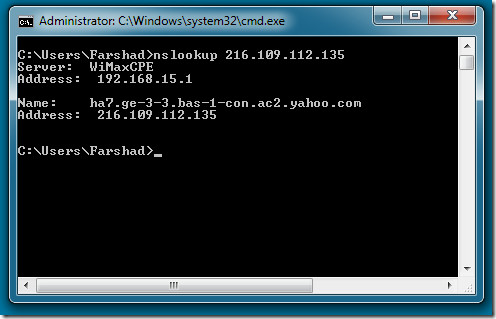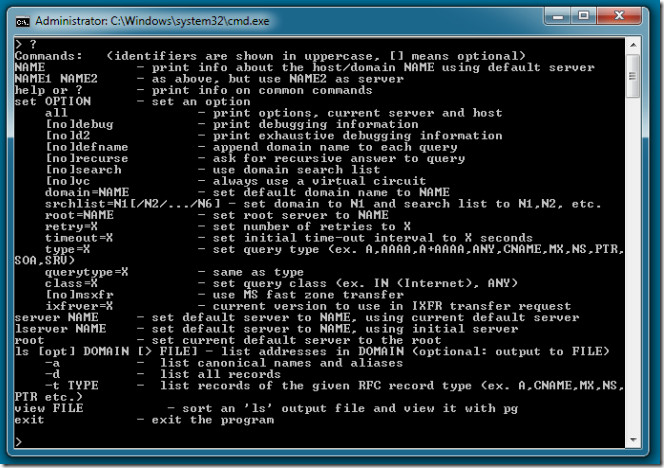Advantages Of Nslookup Command Line For Common Users
Windows command line utility is often neglected by many users, simply because they hardly know the about the slew of features it holds. Many useful applications operate directly from CMD and one of them is Nslookup. It is a network administration command-line tool used widely by system and network administrators. It is used for querying the Domain Name System (DNS) to obtain domain name or IP address mapping or for a specific DNS record. In this article we will explain the benefits that can be dervied by a common user from the nslookup command line.
Nslookup implies name server lookup and it performs its queries via the operating system’s local Domain Name System resolver library. This command is used to diagnose the Domain Name System (DNS) infrastructure and has a number of sub-commands. An average PC user can find a computer name corresponding to an IP address in the following way. Let’s assume you wish to know about the IP 216.109.112.135. In such a case you will simply enter the following command in command prompt: nslookup 216.109.112.135. This will show you information about the IP, which in this case shows that 216.109.112.135 is a Yahoo IP. Some people keep logs in their firewall to check which IPs might be attempting to collect information about their computer. You can later investigate these IPs from your logs by using the Nslookup command. This can be greatly helpful for the average user to obtain information regarding websites that may be involved in profiling your internet activities.
Using nslookup without specifying an IP address or domain name displays your routers server and address (as shown below).

For a list of available commands you can type “help” or “? after entering nslookup in the command prompt. The list of available commands for nslookup are shown in the image below.
Before using this command line funtion, you should be aware of some basics of DNS functionality. DNS (Domain Name System or Service or Server), translates domain names into IP addresses. As alphabetical domain names are easier to remember as compared to IP addresses. The human brain is far likely to remember a word or phrase such as addictivetips.com instead of an IP address. The Internet however, is really based on IP addresses. Every time you use a domain name, a DNS service must translate the name into the corresponding IP address. For example when you type www.addictivetips.com, DNS translates it in relation to 78.46.99.12. DNS saves us from the impossible task of remembering hundreds of thousands of IP addresses.

